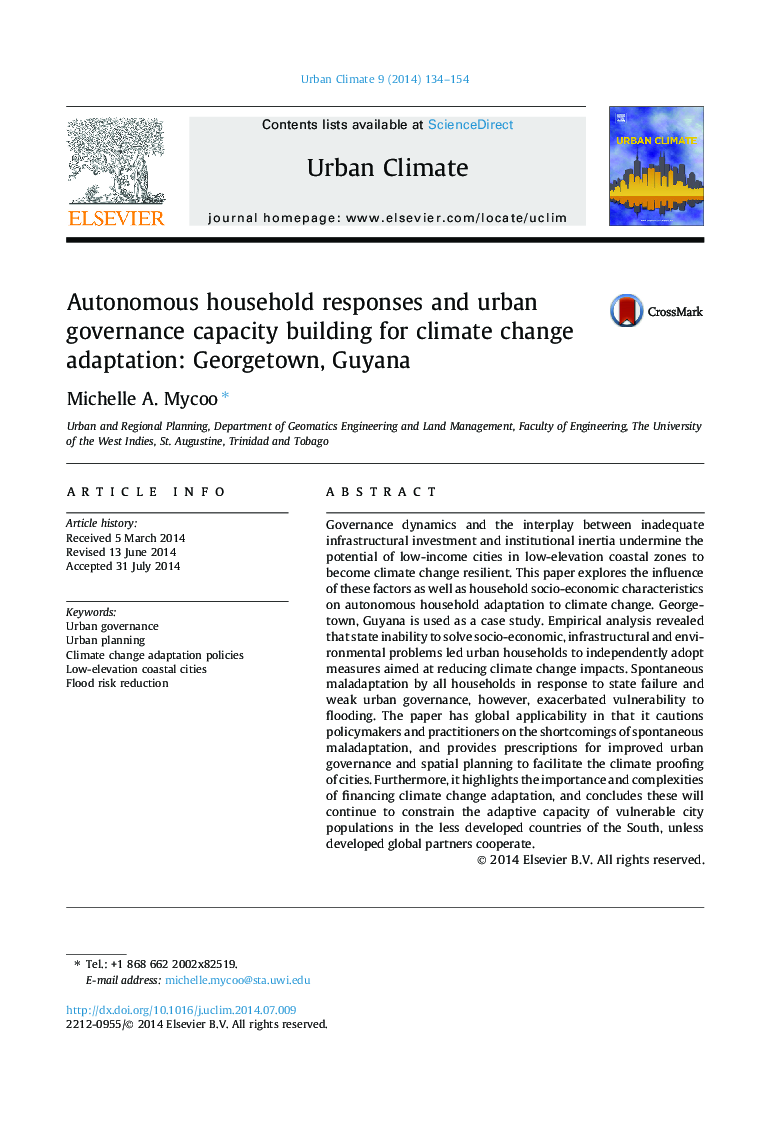| Article ID | Journal | Published Year | Pages | File Type |
|---|---|---|---|---|
| 143767 | Urban Climate | 2014 | 21 Pages |
•All households undertake spontaneous adaptation to minimise flood losses.•Maladaptation by households increases vulnerability.•Weak enforcement of urban planning regulations results in household losses.•Urban governance capacity building is necessary for city resiliency to flooding.•International financing is needed in less developed countries.
Governance dynamics and the interplay between inadequate infrastructural investment and institutional inertia undermine the potential of low-income cities in low-elevation coastal zones to become climate change resilient. This paper explores the influence of these factors as well as household socio-economic characteristics on autonomous household adaptation to climate change. Georgetown, Guyana is used as a case study. Empirical analysis revealed that state inability to solve socio-economic, infrastructural and environmental problems led urban households to independently adopt measures aimed at reducing climate change impacts. Spontaneous maladaptation by all households in response to state failure and weak urban governance, however, exacerbated vulnerability to flooding. The paper has global applicability in that it cautions policymakers and practitioners on the shortcomings of spontaneous maladaptation, and provides prescriptions for improved urban governance and spatial planning to facilitate the climate proofing of cities. Furthermore, it highlights the importance and complexities of financing climate change adaptation, and concludes these will continue to constrain the adaptive capacity of vulnerable city populations in the less developed countries of the South, unless developed global partners cooperate.
